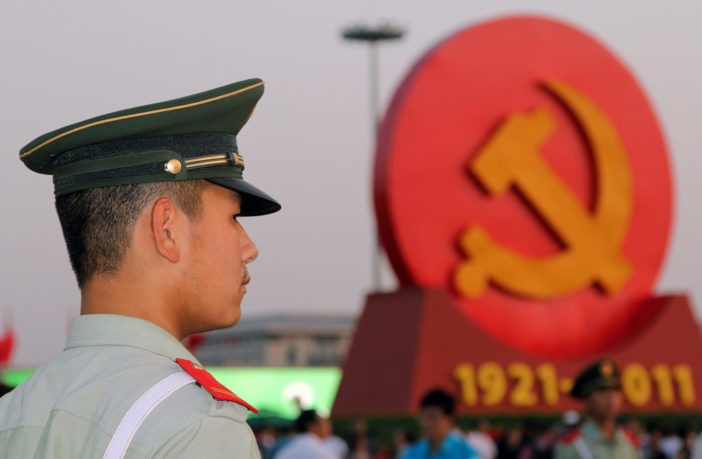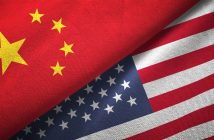In 2016, an investigative series published by Reuters exposed how the systemic incompetence and individual greed were contributing to the devaluing of higher education. But even the tale of two Americans selling access to college admissions officers the Chinese government pales in comparison to allegations that the primary overseer of the SAT and other college entrance exams has been corrupted by the Chinese Communist Party.
“In exchange for generous Chinese government funding, the College Board has given China strategic access to American K-12 education,” states a new report from the National Association of Scholars (NAS). Thanks to the willing complicity of the College Board, the Chinese government was able to infiltrate the American education system by use the partnership to establish Confucius Institutes across the country and to ensure that the teachers leading those programs were approved by Beijing.
The visiting Chinese teachers are placed in local K-12 schools and also encouraged to use textbooks written by an arm of the Chinese government known as the “Overseas Chinese Affairs Office of the State Council. The report says that since 2007, the College Board has “worked with the Hanban to bring more than 1,650 Chinese teachers” to teach students in the United States.
Since 2003, the report states, “the College Board has sponsored Confucius Institutes at K-12 schools, served as a recruiter for Chinese government programs, and helped the Chinese Communist Party design and gain control over American teacher training programs.”
So, what is wrong with this cultural exchange of educators or the College Board being involved with fostering the spread of Confucius Institutes?
First, there is the glaringly obvious clue since the institutes are governed, funded and staffed by Haiban, an agency under China’s education ministry. Second, the widespread and very public concerns about the Institutes’ ties to the Chinese government should raise questions as to why the government has not acted sooner to crack down on them.
For example, a 2012 InsideHigherEd article addresses the fact that critics have “questioned why colleges would provide their imprimatur to institutes that have been described by Li Changchun, China’s propaganda chief, as ‘an important part of China’s overseas propaganda setup.’”
As the Wall Street Journal’s Hong Kong-based reporter David Feith wrote in 2014, College Board CEO David Coleman said that year that “Hanban is just like the sun. It lights the path to develop Chinese teaching in the U.S.”
However, their “website doesn’t mention that Confucius Institutes are Chinese government programs,” nor does it disclose concerns that Hanban “may bully teachers or censor lessons within American classrooms,” he reported.
According to the State Department, there are currently 75 Confucius Institutes operating in the United States, 65 of which are active on U.S. university campuses, with the rest functioning as standalone organizations. In what was an important move both strategically and symbolically, last month the State Department was announced the U.S. headquarters of the Confucius Institutes would be now designated as a “foreign mission.” A senior Chinese official in 2009 classified the Institutes as “an important part of China’s overseas propaganda setup.”
The College Board may have no second thoughts about its relationships, but others are. Some schools are cutting the programs for various reasons, including security concerns. Others, like the University of Missouri, have doing so because of changes to federal guidance, specifically a rule requiring a certified Mandarin Chinese teacher being in each of the classrooms for instruction. Meanwhile, the University of Nebraska-Lincoln is closing its program citing budgetary reasons.
As the Institutes grew across America, Congress and the current and past administration have done little to nothing to combat the infiltration by the Chinese. Thankfully, that has changed in the last year as members of Congress have recognized the obvious threat and the Trump administration, has begun to restrict the issuance of visas to Chinese students, academics and researchers.
“I think everyone’s coming to see the risk associated with them,” Secretary of State Mike Pompeo said earlier this year. Meanwhile, the Justice Department continues to ramp up investigations into and prosecutions of visa fraud and abuse perpetrated by the Chinese academics who typically hide their connections to the Chinese government to secure prime spots on American campuses.
As Congress is likely to remain unable to combat Chinese influence through passage of new laws, it is incumbent on the Trump administration to tighten visa restrictions, increase scrutiny through enhanced screening and use the bully pulpit to ensure the American people know who its enemies are – both inside and outside of our borders.




